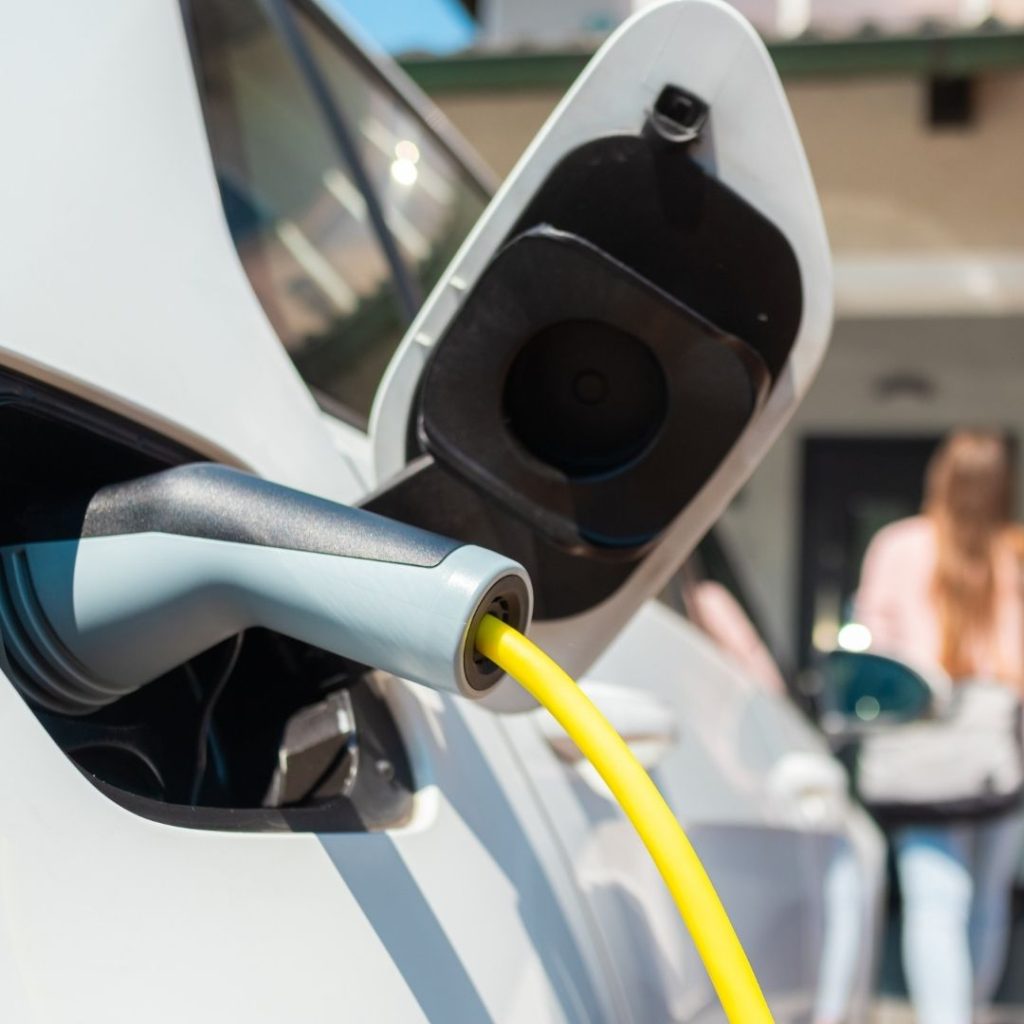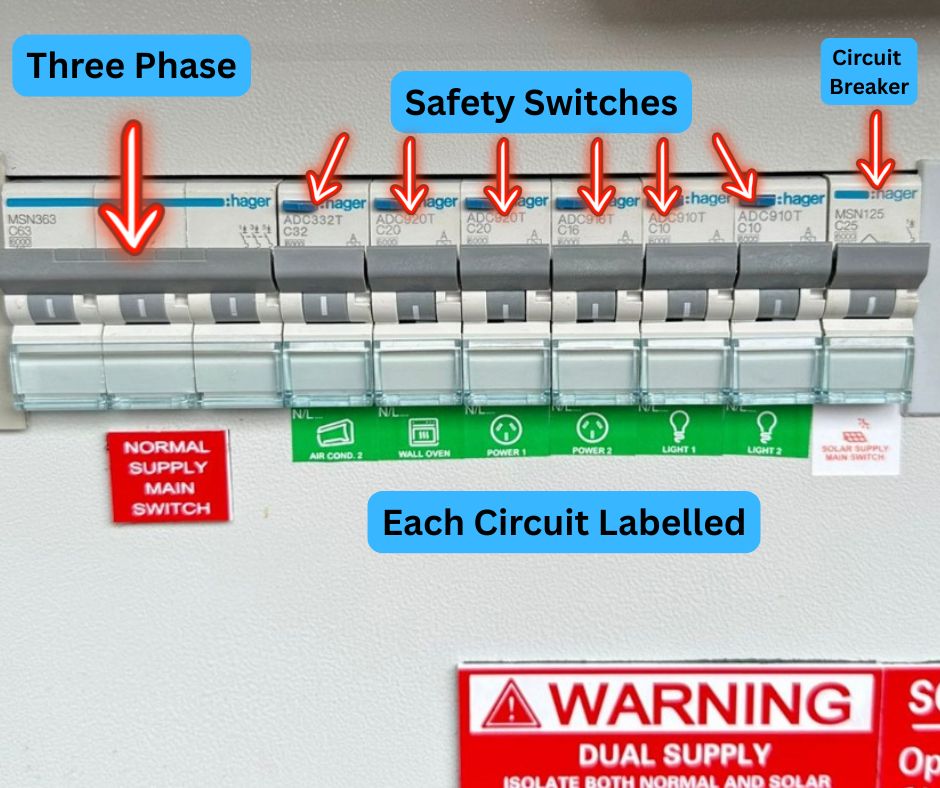Why You Must Upgrade Your Switchboard for Safe Electric Vehicle Charger Installation at Home
Absolutely! In a significant number of households across Melbourne, the installation of an EV charger often necessitates a crucial switchboard upgrade. Many older switchboards simply do not offer the required load capacity, RCD protection, or available circuit space necessary for a safe and compliant installation of an electric vehicle charger. Engaging a licensed electrician to conduct an exhaustive inspection and upgrade your switchboard is vital to ensure that your residence can safely handle the charging of your EV without any associated hazards or compliance issues.

As the popularity of electric vehicles skyrockets in Melbourne, an increasing number of homeowners are choosing to install EV chargers in their garages or driveways. However, many individuals remain unaware that proper preparation of your home’s electrical system is essential, and this preparation commences with a thorough evaluation of your switchboard. It is crucial to ensure that your electrical infrastructure can accommodate the demands of an EV charger not only for safety but also for maximum efficiency in charging.
At Direct Point Electrical, we have successfully installed a multitude of EV chargers across Berwick, Narre Warren, and Cranbourne in the outer region of Melbourne. In nearly every situation, the switchboard is the first component we examine to confirm that it adheres to all necessary standards for safe and effective charging. Our expertise guarantees that each installation complies with local regulations while delivering optimal performance, ensuring a hassle-free experience for our clients.
Understanding the Unique Requirements for EV Charger Installation Compared to Regular Power Points
EV chargers are fundamentally different from standard household appliances like toasters or washing machines. Most residential charging units, particularly the 7kW and 22kW models, require:
- A dedicated circuit specifically designed to efficiently manage the electrical load
- RCD protection, as mandated by AS/NZS 3000 standards to guarantee safety
- Ample amp capacity, typically ranging from 32A to 50A
- Effective load balancing to minimize the risk of overloading other circuits within your home
Consequently, connecting an EV charger to an outdated fuse box or an overloaded switchboard is not just imprudent; it poses considerable safety risks and fails to meet current regulations. For comprehensive guidance on the prerequisites for EV chargers in residential settings,
Assessing Whether Your Switchboard Requires an Upgrade for EV Charger Installation
If your home was built over two decades ago, it is very likely that your switchboard lacks the necessary capacity to support an EV charger. Here are several indicators we evaluate during our assessments:
- Old ceramic fuses or asbestos backing, both of which are outdated and hazardous
- Absence of RCD or safety switch protection, which is essential for preventing electrical accidents
- Limited circuit space that does not permit the installation of a new dedicated circuit
- Signs of burn marks, buzzing noises, or frequent tripping while using appliances
- Lack of a 3-phase supply if you plan on installing a faster 22kW charger
Any of these warning signs highlight potential risks regarding safety and EV compatibility within your home and should not be ignored.
Note: The Electric Vehicle Council advises that a dedicated circuit be installed for your EV. This precautionary measure helps to prevent the overloading of existing circuits in your home. When configuring a dedicated circuit, consider opting for a 15amp outlet and charger instead of the standard 10amp circuit, as this change can enhance your charging rate by 50% and cut down your charging time by a third.

Detailed Steps Involved in the Switchboard Upgrade Process
At Direct Point Electrical, we strive to make the upgrade process as straightforward and stress-free as possible for our clients:
- Site Assessment – We conduct a thorough inspection of your existing switchboard, wiring, and main power supply to identify any potential issues.
- Load Calculation – We evaluate whether your residence can effectively handle the additional load introduced by the EV charger.
- Upgrade Planning – If an upgrade is deemed necessary, we provide a detailed quote for a new compliant switchboard that includes RCDs, surge protection, and enough space for the EV charger.
- Documentation & Compliance – We take care of all necessary paperwork with your energy distributor (AusNet or United Energy) and issue a Certificate of Electrical Safety upon completion.
Depending on the existing condition and configuration, most upgrades can be completed within a single day, allowing you to quickly enjoy the convenience of charging your EV directly at home.
Understanding the Electrical Compliance Requirements in Victoria for EV Chargers
All electrical work performed in Victoria must adhere to the AS/NZS 3000 Wiring Rules, which apply to the installation of EV chargers. A licensed electrician is required to:
- Implement RCD protection for the dedicated circuit
- Ensure that the load from the charger does not exceed the capacity of the main switch
- Submit necessary documentation to your energy distributor
- Provide a Certificate of Electrical Safety upon project completion
Attempting any DIY or unlicensed installations is not only illegal; it also voids warranties and can lead to severe fire hazards or insurance claim denials, putting your home and safety at risk.
Essential Steps to Take If You Already Have Solar Panels or Batteries Installed
This is excellent news! However, it remains crucial to examine how the EV charger will interact with your existing solar energy system. Balancing the load between solar energy, battery storage, and EV charging requires careful planning and consideration.
We will collaborate closely with you to:
- Schedule charging times to maximize the use of solar energy for your EV
- Ensure that your inverter and battery configuration can handle the energy demand from the charger
- Recommend suitable charger models that feature smart load management capabilities
Evaluating the Necessity of a 3-Phase Power Supply for EV Charging
Not necessarily. A 7kW charger operates effectively on single-phase power for the majority of users. However, if:
- You desire faster charging times
- You own two electric vehicles
- Or you are running high-load appliances concurrently
… then contemplating a 3-phase upgrade could prove beneficial. We can provide expert guidance on this matter during your initial inspection.
Crucial Factors to Consider for an Effective EV Charger Installation
If you are thinking about installing an EV charger at your residence, prioritizing your switchboard is a critical step. At Direct Point Electrical, we offer free site inspections, transparent pricing, and a streamlined process to ensure safe, efficient, and future-proof EV charging solutions tailored specifically to your home.
Whether you reside in Berwick, Narre Warren, or any area in Melbourne’s outer east, we have the ideal EV charging solution to meet your individual needs and requirements.
EV Charger Installations
The Article: Switchboard Upgrade for Home EV Charger Installation: Do I Need It? first appeared on https://writebuff.com
The Article Home EV Charger Installation: Is a Switchboard Upgrade Necessary? Was Found On https://limitsofstrategy.com

